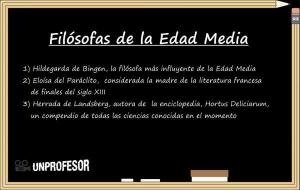The origin of Philosophy
In this first video about Philosophy I will explain what it was the origin of philosophy.
Imagine a society in which any personal or individual attempt at thought is persecuted, because this own thought can be understood as a threat to the established power. In a society in which whoever governs, for example, does so legitimized by the only accepted religion, Philosophy it cannot be born, or, if it already exists, it cannot have a great development, apart from continuing to legitimize the structure existing.
The reason is simple, Philosophy is the development of thought with total freedom, and free thought is considered dangerous, since it can put in doubt, dogmas necessary for the established status.
Western Philosophy was born in Greece, around the 7th century BC. Why not before, or elsewhere? In Egypt, mathematics was born as a result of a necessity: the periodic floods of the Nile, so vital for their survival, make it difficult to establish exactly the limits of the properties of the land. From that need arises the mathematical calculation: Perhaps we cannot know exactly what the plot is of land of a specific peasant, but with mathematical calculation we can know how much land has.
Why does philosophical thought not arise in Egypt? Egypt is a theocratic society in which those who rule do so legitimized for religious reasons. Pharaoh is considered to be a divine being since he is the son of the god Ra. The legitimacy of his political power is clearly related to his divine origin. Allowing freedom of thought to question the divine reality of Pharaoh is a real threat to one's own political system, so not the slightest doubt is allowed, and certainly no thought philosophical.
Another way of boycotting philosophical thought is to consider that it is not possible to advance in knowledge, so there is to accept the authority of the ancient sages, preserve their works, learn their thinking, but never think anything new.
At first the human being, due to his curious and intelligent nature, tries to find answers to the questions posed throughout his life, among which are the questions relating to the beginning of the universe and the reason for its existence. That is why we try, from the very beginning, to resolve these questions that have always fascinated humanity.
The human being, but, for psychological reasons, needs to give an answer at the same time that a question is asked, even if he does not have enough data to solve it, or This question does not have a clear answer, and, therefore, the first answers that will be given to the problems about the origin of the universe will be answers very far from the logic of scientific reasoning, in which the gods and the forces of nature will intervene to explain the existence of the universe and its source. These stories are called Myths and have long been the focus of reasoning. about the structure of the world around us. In Ancient Greece from the 7th century to C, there were a series of historical and geographical circumstances that determined the possibility of changing the way of responding to transcendent questions:
- 1. Greece was a town of merchants, which made contact with other peoples and cultures possible, and therefore with other myths, which made it possible to contemplate the mythical fact with more relativistic eyes.
- 2. The political structure of Greece (small city-states) made it possible for some of these city-states to have a certain freedom of thought that allowed to question previously accepted thinking without fear of persecution for these ideas new.
- 3. The appearance of wealthy social classes economically and idle who did not need to work to live, which allowed pure reflection.
These reasons, among others, made possible the birth of a freer thinking in Greece from the 7th-6th centuries to C, and that it had reason as its basic foundation, and not a series of mythical responses without a rational background. This process is known as The Passage from Myth to Logos.
The first.



